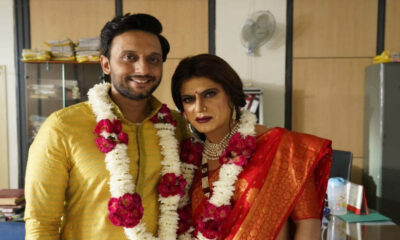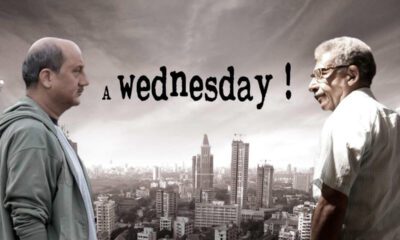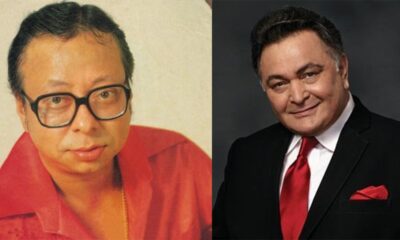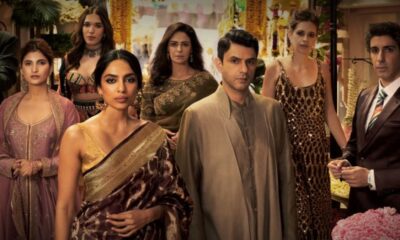Exclusive Premium Content
7 Years Of Dum Lagake Haisha
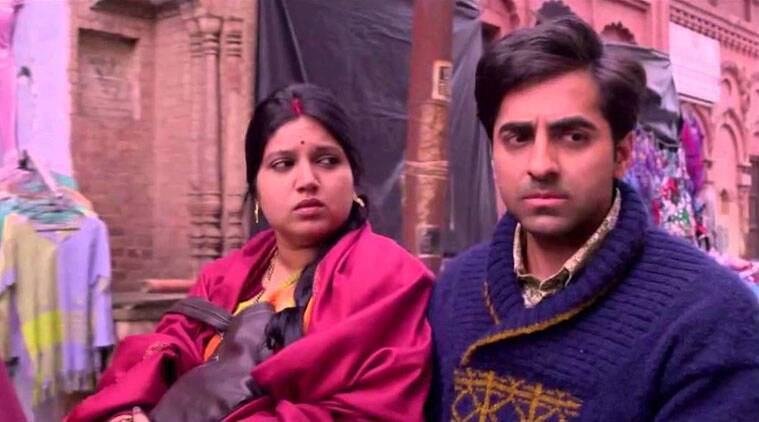
Dum Lagake Haisha which was released on 27 February , 2015 is probably Yash Raj films’ biggest money maker ever. Estimated budget: Rs 7 crores. Estimated profits: over Rs 55 crores to date. Market value: infinite.
The film about a mismatched couple in Hardwar was funny,warm, real and heartwarming. Strictly speaking this was not director Sharat Kataria’s debut film. But who remembers Sharat’s 10 ML Love? Dum Laga Ke Haisha (DLKH) created a miniature storm. But Sharat who has earlier directed 10M Love a desi version of Shakespeare’s A Midsummer Night’s Dream, didn’t let his family watch the film.
“That’s because they’ll all recognize themselves in one character or another, and I was scared they’d pull me up for using their lives without permission,” says Sharat who hails from a large joint family in East Delhi.“It isn’t the affluent side of Delhi and certainly not where the elite of the Capital live. It’s a normal middleclass locality where you’ll find people from all over North India.The world I’ve created in DLKH is a world I’ve lived in. These are characters I know first-hand.”
Brilliantly shot in musty rusted shades of renewable decadence DLKH brings back the quaint endearing romance of Basu Chatterjee’s cinema. The slender story of a newly married couple struggling to find a common ground in a crowded stifling low middleclass family is reminiscent of Basuda’s Piya Ka Ghar and of course Sara Akaash. The rather self-conscious finale is sadly a cinematic necessity that happily, doesn’t take away from the film’s utterly unselfconscious weightless debate on marriages being made in heaven or hell.
What works forcefully in the film’s favour is its disarming simplicity. Debutant director Sharat Katariya is a diligent steadfast storyteller. His eye for visual detail (inherited from his guru Rajat Kapoor) goes a long way in making the character’s appear larger than their strife.
Ayushmann Khurrana totally transforms into Haridwar’s Sanu fame thumb-controlled by a father who slips condoms into Sunny-Boy’s hands on his suhaag raat reminding him that they can’t afford to expand their family at the moment. Debutant Bhumi Pedneker plays the overweight bride with a breezy confidence that gives a wazan to her performance. She is a prized find.
There are many heroes in this economically told unfaltering tale of a marriage of incompatibles: the debutant director, so unerring in his detailing of the drama, the serene city of Haridwar caught in a bright but believable light by Manu Anand’s camera, Ayushmann Khurrana bringing back fond memories of Raj Kapoor and Amol Palekar’s working-class anxieties.Every character , from the heroine’s bratty kid-brother to the hero’s Muslim friend, is so sharply sketched they only needed to be fleshed out by able actors, like Sanjay Mishra and Sheeba Chadha, the latter playing the former’s sharp-tongued spouse-deserted sister seeking entertainment in domestic strife.
Sounds familiar, right?
It’s very interesting to see how comfortably the very talented Sanjay Mishra and Seema Pahwa who played the lead in Rajat Kapoor’s highly-lauded Ankhon Dekhi last year, fit into the peripheral parts of the hero’s father and heroine’s mother in Dum Laga Ke Haisha (DLKH).
Come to think of it, 20 years ago Mishra and Pahwa could have comfortably played the lead of an uncomfortably married couple here. Ayushmanna Khurrana is the under-educated Kumar Sanu fan from Haridwar who doesn’t seem to have much ambition in life except to marry a pretty girl.
Newcomer-with a commodious qammar-Bhumi Pednekar played the educated aggressive girl who doesn’t believe in taking it lying down from her newly married husband. Uncannily, Khurrana with his slouched obduracy reminded me of Rakesh Pandey in Basu Bhatterjee’s Sara Akaash, the newly-married chap who won’t talk to his wife because ….well, she doesn’t quite fit. And we don’t mean into the narrow doors and gallis of Haridwar where Ms Pedneker moves with the counter-clumsy certainty and dignity of a woman who knows her weight is not going to let her become anyone’s dream woman, not even her dear beloved husband who after a drink or two describes as a “moti bhains” in front of his friends.
“I am the bride. But it’s he who blushes like one,” Sandhya (Pedneker) tells her curious friend who calls on the landline (this is 1995) to know what happened on the suhaag raat.
Well, nothing did. If you must know.
A majority of the first-half is taken up in showing how Sandhya builds a bridge of confidence with her reluctant bridegroom, only to discover he is not worth it. Fiery and obstinate Sandhya leaves her Sasural and returns home. One of the film’s many warmly meditative moments occur when Sandhya’s mother tries to hurriedly lecture her about how much a woman must endure to keep a marriage together. That moment is treated like a dismissive joke. So is the activist-lawyer who seems to enjoy separating Sandhya from her husband. The film mocks feminist ideology without resorting to crass strokes of aggression.
Later there’s a smartly humorously written courtroom sequence where during a divorce proceeding, Prem’s mother (Alka Amin) brings up the issue of a woman’s compromises to keep domesticity intact.
“Why don’t you two also go in for a divorce right now?” Prem suggests with saddening sarcasm.
The writing is so fluent robust and rooted to the milieu that we never feel the weight of nostalgia in the words. Though set in the pre-cellphone, VHS, audio cassette era DLKH carries the weight of its periodicity very lightly, almost jauntily. In that sense this film differs widely from Ayushmann Khurrana’s previous release Hawaizaada where the period flavour was pronounced and pungent. Here the aroma of the 1990s pervades the screen in intangible wafts. We feel the atmosphere in every character’s existence. These are people who don’t really care about how much they weigh as long as they can forge some meaning out of their meager existence.
Ayushann Khurrana fitted into his character of the pitiable Mr Nobody so effectively one couldn’t see Ayushmann on screen. One only saw Prem the surly Kumar Sanu fan who is so unhappy with life that he takes it out on his wife.
Bhumi Pednekar had to gain a whopping 27 kgs. She says she never thought of turning away from the challenge. “There I was, a girl with no Bollywood connections getting to do a Yash Raj film. To me Yash Raj was the ultimate.Not for a minute did I hesitate in saying yes. I thought about the challenge of putting on the extra kilos after saying yes.”
Butter chicken did it for Bhumi. “I constantly ate to maintain my heavier girth in Dum Lagake Haisha.I don’t think I ever want see butter chicken again.”
And then Bhumi lost it all. “I went back to being of normal weight. In Toilet Ek Prem Katha it was like being launched as a newcomer. Audiences found it hard to connect the plump girl in Dum Lagake Haisha with the slimmer girl in Toilet Ek Prem Katha.”
In Dum Lagake Haisha she played Ayushmann’s overweight wife whom he spends most of time being embarrassed about. The classic dilemma of an arranged marriage here brought to flickering life by the actors who lived the roles of man and wife.At the end of this fabulous film about coming to terms with life,marriage and weight problems, Ayushmann had to run across the screen with Bhumi on his shoulders. He has never stopped bearing the burden of a socio-culturally responsible actor. By the time Ayushmann did Bala with Bhumi she had lost all the avoir dupois but the chemistry remained crackling real.

